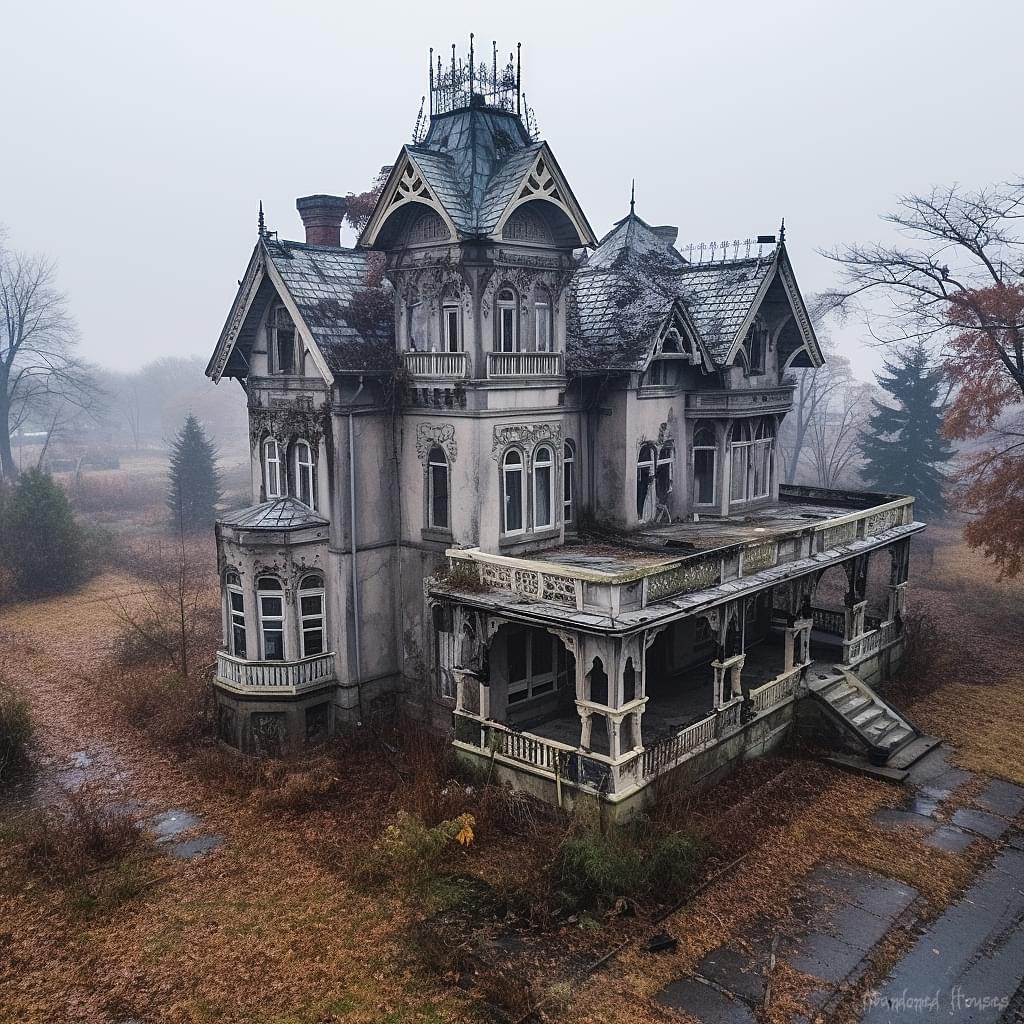In the heart of a forgotten village, at the end of a winding dirt road, stood a house that time had all but forgotten. Its once white paint, now chipped and peeling, clung desperately to weathered wooden boards.
The windows, now hollow and empty, stared out into the world like tired eyes, heavy with memories long past.
There was a time when laughter filled the rooms, when voices bounced off the walls and the warmth of a crackling fire glowed from within. It had been a family home, full of life and love. Children raced down the halls, their feet pounding joyfully on the creaking floors. In the kitchen, a mother hummed as she stirred a pot of soup, the scent of rosemary and thyme wafting through the air.
The father, a sturdy man with calloused hands and a kind heart, would sit by the window, whittling wood and watching the sunset, his face softened by the golden light.
But life, as it often does, took its unexpected turns. One cold winter, the father fell ill. His strong hands grew weak, and the light in his eyes dimmed.
The mother tended to him with a worried heart, but no medicine could heal what ailed him. In the middle of a bitter January night, the house grew silent. The fire went out, and the father was gone.
Grief clung to the family like a heavy blanket. The children’s laughter grew quieter, and the mother’s smile faded. The house, once full of warmth, began to cool. Cracks appeared in the walls, the roof began to sag, and the wind howled through the chimney like a mournful ghost.
Eventually, the mother could no longer bear the weight of the memories. She packed what little they had left, gathered her children, and left the house behind. They disappeared into the world, leaving the home to the elements, abandoned and forgotten.
Years passed, and the house sat empty. The seasons came and went, each one leaving its mark. In the spring, wildflowers sprouted in the garden where once vegetables had grown. In the summer, vines crept up the walls, claiming the house as their own. Autumn winds stripped away what little remained of the shutters, and winter snow piled high against the door, as if trying to erase it from existence.
But despite the wear and tear, the house remained. And in its quiet, it remembered. It remembered the children’s laughter, the father’s steady hands, and the mother’s soft humming. It remembered the love that had once filled its rooms.
Sometimes, on still nights, when the moon hung high and the wind was calm, if you stood close enough, you could almost hear it—the echo of laughter, the faint hum of a melody, the ghost of a life once lived. The house, though abandoned by those it sheltered, held onto those memories. They were woven into its very foundation, and though the world moved on, the house stood firm, cradling the past like a precious secret.
It was a monument to what had been, a testament to the fleeting beauty of life and love. Though empty, it was never truly alone. For within its walls, the house still held the echo of a family, of warmth, of home.

